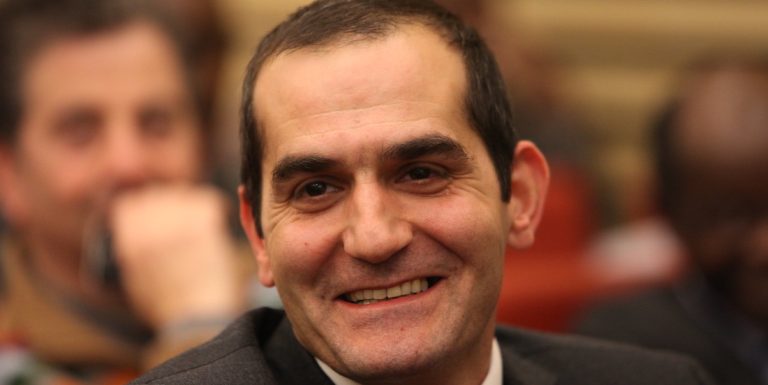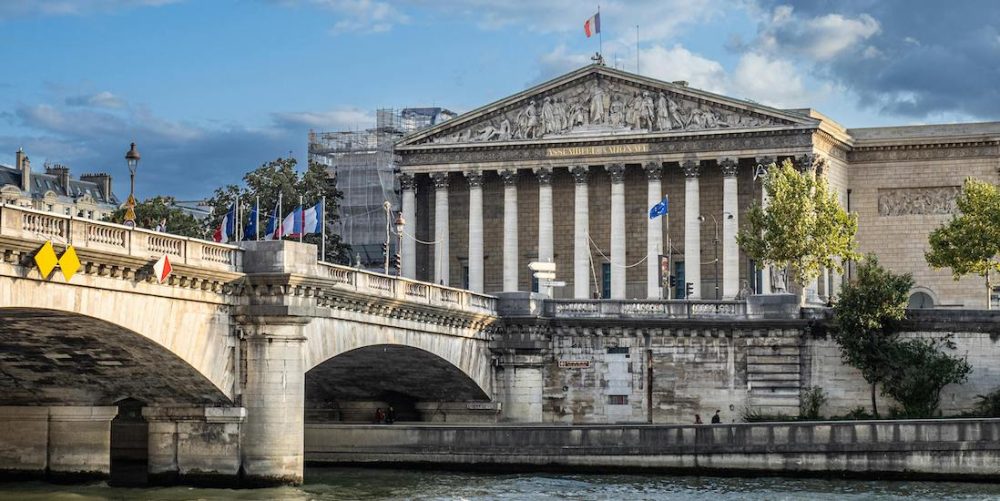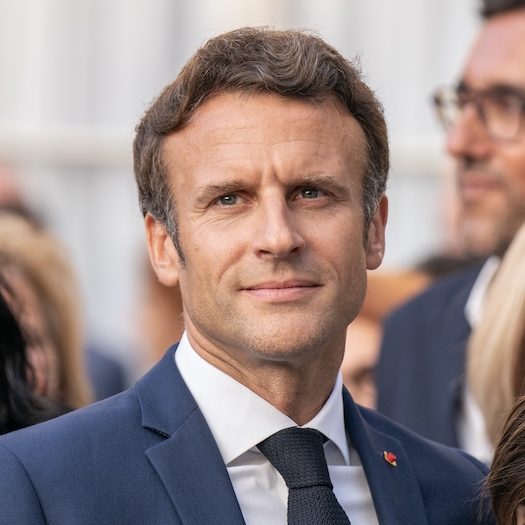
New York, N.Y. – A French lawmaker’s plans to engage with U.S. policymakers were abruptly halted when his visa was denied, sparking a diplomatic controversy and raising questions about U.S. immigration policies under the Trump administration.
Pouria Amirshahi, a prominent Green Party member of the French Parliament, was barred from entering the United States on June 17, 2025, in a move he described as politically motivated. The incident, unprecedented in over two centuries of U.S.-French relations, has ignited debates over national security, diplomacy, and the travel ban policies recently reinstated by President Donald Trump.

Visa Rejection Sparks Diplomatic Tensions Between U.S. and France
On June 17, 2025, Pouria Amirshahi, an Iranian-born French lawmaker and co-founder of the progressive initiative “The Dam,” learned that his visa application to visit the U.S. had been rejected.

Amirshahi, a Green Party member, intended to meet with U.S. lawmakers, civil society leaders, and intellectuals to discuss building a “progressive international” alliance to counter the global rise of far-right ideologies.
The visa denial, which Amirshahi believes was politically driven, marks the first time in 240 years that a French parliamentarian has been refused entry to the U.S., according to the lawmaker.
Amirshahi expressed outrage, stating, “This is an unprecedented affront to the longstanding diplomatic ties between our nations.” He had previously visited the U.S. three times between 2000 and 2013 without incident, first as a tourist, then as a cultural director for the Parti Socialiste, and later as a Socialist MP.
The Green Party member’s recent shift toward advocating a global progressive alliance may have triggered scrutiny under the Trump administration’s tightened immigration policies.
The visa denial marks the first time in 240 years that a French
parliamentarian has been refused entry to the United States
Context of Trump’s Expanded Travel Ban
The visa denial coincides with President Trump’s reinstatement of a controversial travel ban, signed into effect on June 4, 2025, via Executive Order 14161. The order bans citizens from twelve countries, primarily in Africa and the Middle East, from entering the U.S., citing concerns over terrorism, visa overstays, and inadequate vetting processes.

Seven additional countries face heightened restrictions, though France is not explicitly named in the ban. The White House justified the policy as essential for “national security” and to prevent “dangerous foreign actors” from entering the U.S.
However, Amirshahi’s case suggests that the U.S. State Department may be applying broader discretion in visa decisions, potentially targeting individuals whose political activities are perceived as critical of the Trump administration.
In his visa application, Amirshahi noted that his trip aimed to “build a progressive alliance and understand life in the United States under the Trump presidency.” He told POLITICO that this framing likely led to the initial refusal, which he described as “politically motivated.”
On June 20, 2025, POLITICO reported that Amirshahi’s visa was approved following public outcry and diplomatic pressure, allowing him to travel to the U.S.. However, the initial denial has raised concerns about the U.S.’s approach to international relations and its treatment of allies.
Critics argue that the incident reflects a broader pattern of restricting entry based on political ideology, echoing sentiments from Trump’s first-term travel ban, which faced legal challenges for targeting Muslim-majority countries.
Reactions and Diplomatic Fallout

The incident has drawn sharp criticism from French officials and international organizations. French President Emmanuel Macron, already at odds with Trump over issues like Iran and G7 negotiations, called the visa denial “a regrettable misstep” that undermines bilateral relations.
Claude Malhuret, a French senator known for his outspoken critiques of Trump, compared the move to tactics used by authoritarian regimes like China, which routinely deny visas to critics of the Chinese Communist Party.
Abby Maxman, president of Oxfam America, condemned the travel ban and its broader implications, stating, “This policy is not about national security—it is about sowing division and vilifying communities.”
International aid groups and refugee resettlement organizations echoed her sentiments, arguing that the travel ban unfairly targets vulnerable populations and disrupts family unification efforts.
On X (formerly Twitter), users expressed alarm over the incident. One post described Trump’s administration as “verifying authoritarian concerns” by blocking Amirshahi, while another questioned how the U.S.’s actions differed from China’s visa policies. These sentiments reflect growing unease about the Trump administration’s approach to foreign policy and immigration.
Implications for U.S.-France Relations
The visa denial risks straining U.S.-France relations, which have historically been robust despite occasional tensions. France, a key NATO ally and partner in counterterrorism efforts, has cooperated closely with the U.S. on issues like global security and climate change. Amirshahi’s exclusion, even if temporary, sends a troubling signal to European allies about the U.S.’s openness to diplomatic engagement.
Analysts suggest that the Trump administration’s policies may be driven by a desire to project strength and deter perceived critics. The travel ban’s broad criteria—such as inadequate vetting or high visa overstay rates—provide significant leeway for the State Department to deny entry to individuals like Amirshahi, whose progressive advocacy may be viewed as a challenge to Trump’s agenda. The U.S. Secretary of State, Marco Rubio, has defended the ban, emphasizing the need to protect American interests from “foreign actors.”
Amirshahi, now permitted to travel, plans to proceed with his meetings but has called for transparency regarding the initial denial. “The U.S. must clarify whether this was an error or a deliberate act,” he said. His case may prompt further scrutiny of the travel ban’s implementation and its impact on diplomatic relations.
Looking Ahead: Policy and Accountability
The incident underscores the challenges of balancing national security with international cooperation. While the Trump administration argues that the travel ban is essential to protect American citizens, critics warn that it risks alienating allies and stifling free expression. The U.S.’s decision to reverse Amirshahi’s visa denial suggests responsiveness to diplomatic pressure, but questions remain about the consistency and fairness of visa policies.
Amiri, a United Nations correspondent for The Associated Press, noted that the travel ban’s broad scope could deter legitimate travelers, including diplomats, journalists, and activists, from engaging with the U.S.. The Somali ambassador, Dahir Hassan Abdi, emphasized the need for dialogue to address concerns raised by the ban, signaling a desire to maintain bilateral ties despite the restrictions.
As the U.S. navigates its foreign policy under Trump, the Amirshahi incident serves as a reminder of the delicate balance between security and diplomacy. The French lawmaker’s experience may galvanize efforts to challenge the travel ban’s scope and ensure that allies are not inadvertently targeted.

Summary for audio file
On June 17, 2025, French MP Pouria Amirshahi was denied a U.S. visa, sparking diplomatic tensions. The Green Party member, aiming to build a progressive alliance, called the move politically motivated. The incident, linked to Trump’s travel ban, was reversed after outcry, but it raises concerns about U.S. immigration policies and their impact on allies. Critics warn of strained relations, while the administration defends the ban as vital for national security.